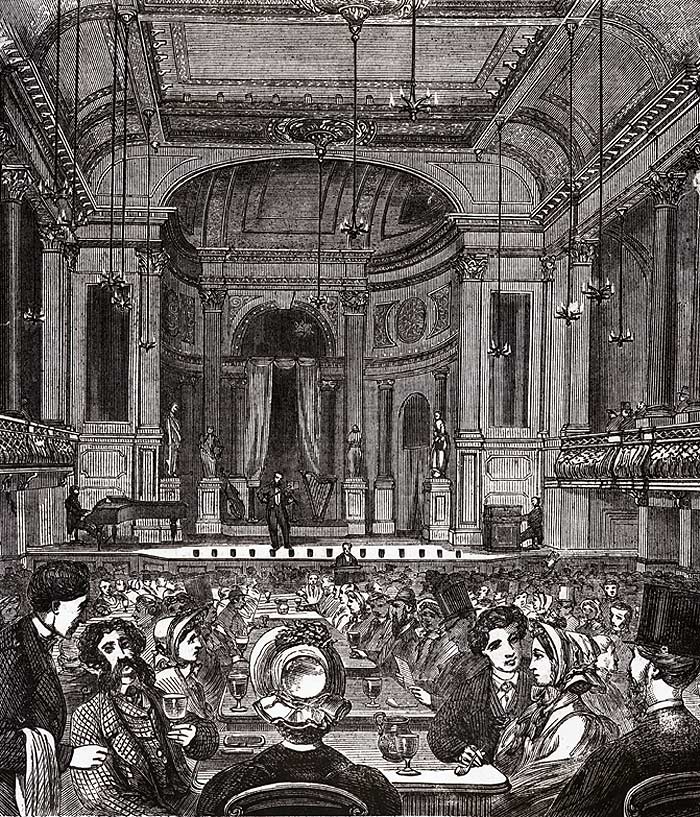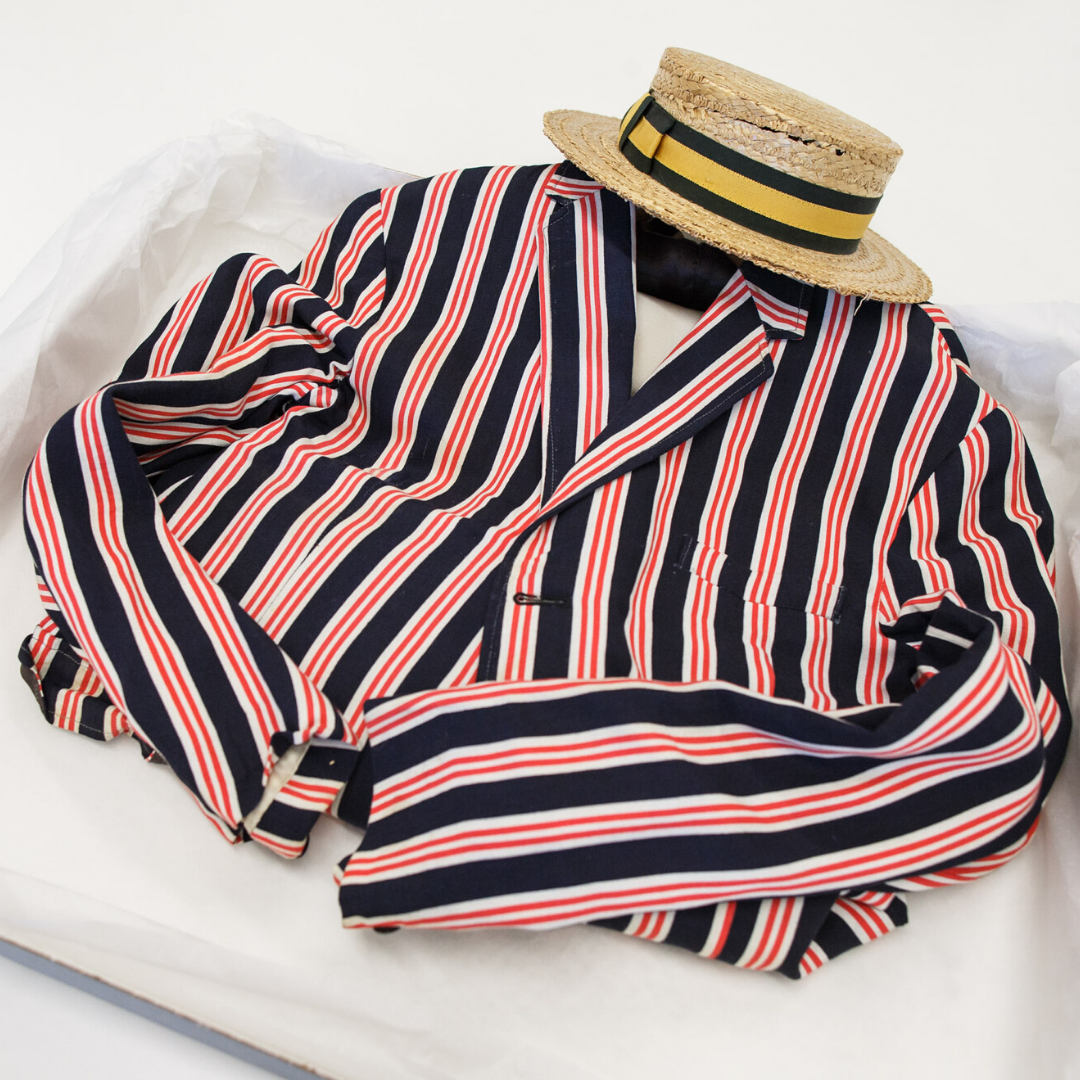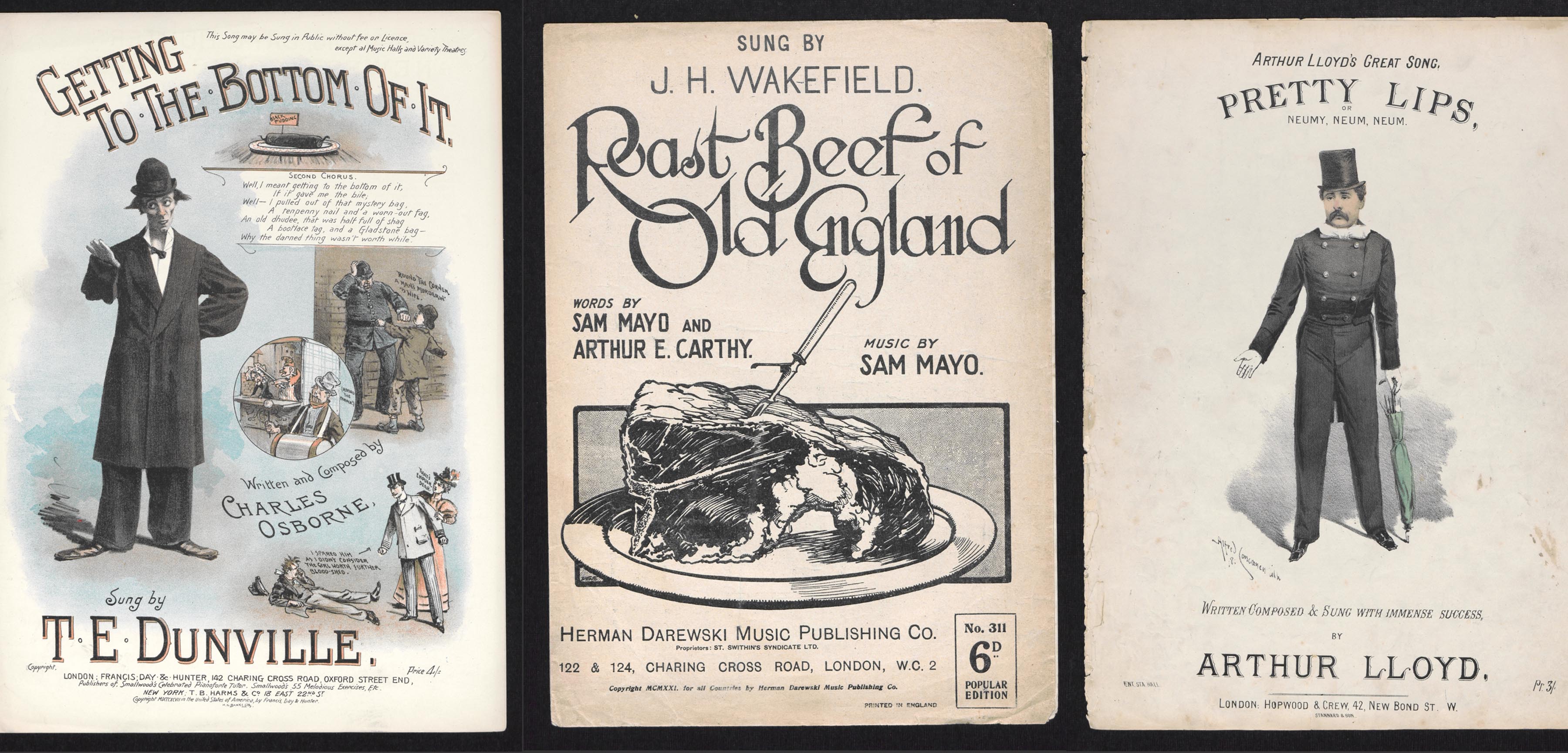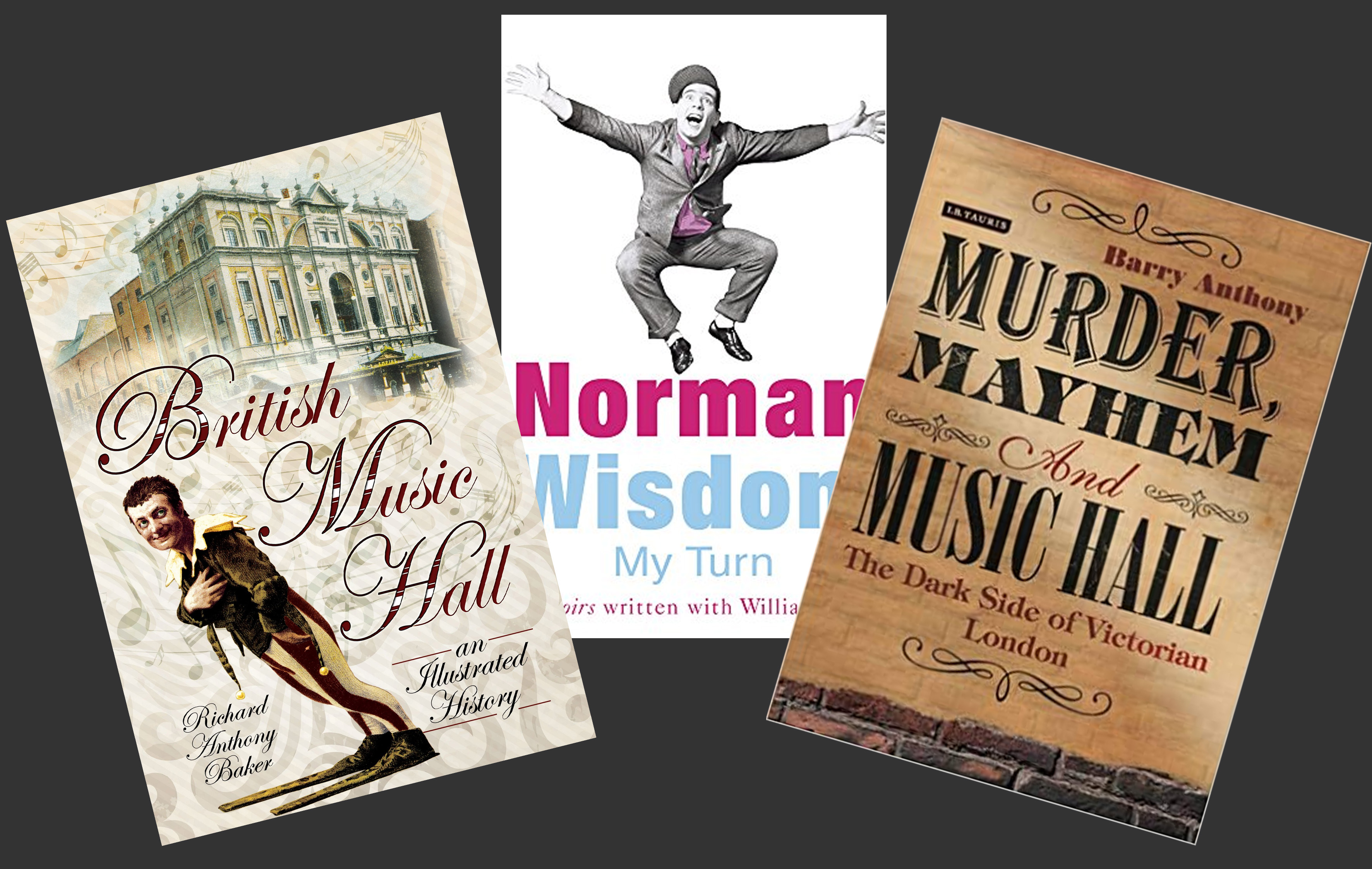You may remember reading about the Max Tyler Music Hall Collection in our #musichallvareityday blog post. Today we’re going to delve a little deeper in to one part of this rich and impressive collection – the research files!
It goes without saying that Max was a great fan of music hall, and he was known by many for his specialist knowledge of the subject. But Max was also a diligent organiser and an avid researcher of music hall, and this is reflected in the research files within this collection.
Whilst working as the British Music Hall Society’s historian and archivist he would receive many queries from people all over the world. Max would always go the extra mile when responding to these queries, often carrying out a substantial amount of research on the enquirer’s behalf. He seemed to have a knack for knowing where to look for the most elusive of details, and his knowledge of obscure music hall songs was second to none. The outcomes of this research, alongside his own research for the various articles, publications and presentations he produced, was compiled into these files.
So, what do we have here…?
Within the collection there are:
- 115 files on specific performers, covering such well-known artists as Vesta Tilley, Gus Elen, Marie Lloyd and Dan Leno. Male performers make up almost 65% of this sub-series of files, whilst only 32% focus on female performers. There are also 3 files about double-acts and one about a performance group (The Co-Optimists).
- 12 files on specific subjects, including racing, the Salvation Army, football, railways, the genealogy of music hall, and ballooning!
- 5 files about specific theatres, which includes the Musical Comedy and Gaiety Theatre (London), the Palace and Middlesex music halls, The Windmill (London), and two about the Players Theatre (London).
- 4 files about historic events; the Suffragette movement, the Jameson Raid, the Anglo-Zulu war, and the Princess Alice Paddle Steamer Disaster
- 3 files about a specific show or production, two about the stage show ‘Trilby’, and one about the BBC radio show ‘Palace of Varieties’.
- And 1 file about a historic figure (it’s Queen Victoria)
There are also 43 files on less specific topics, such as ‘Songwriters’ and ‘Artistes’, collations of print outs and requests from research institutions like the Bodleian Library, or alphabetised folders containing collated resources and songs.

The most frequent words to appear in the catalogue records of the research files in the Max Tyler Music Hall Collection.
Some highlights…
Now, files full of photocopies of published songsheets may not sound too exciting, however there are some real gems amongst the collection…
A songsheet for the song ‘Lambeth Walk’ which includes dance moves on the back
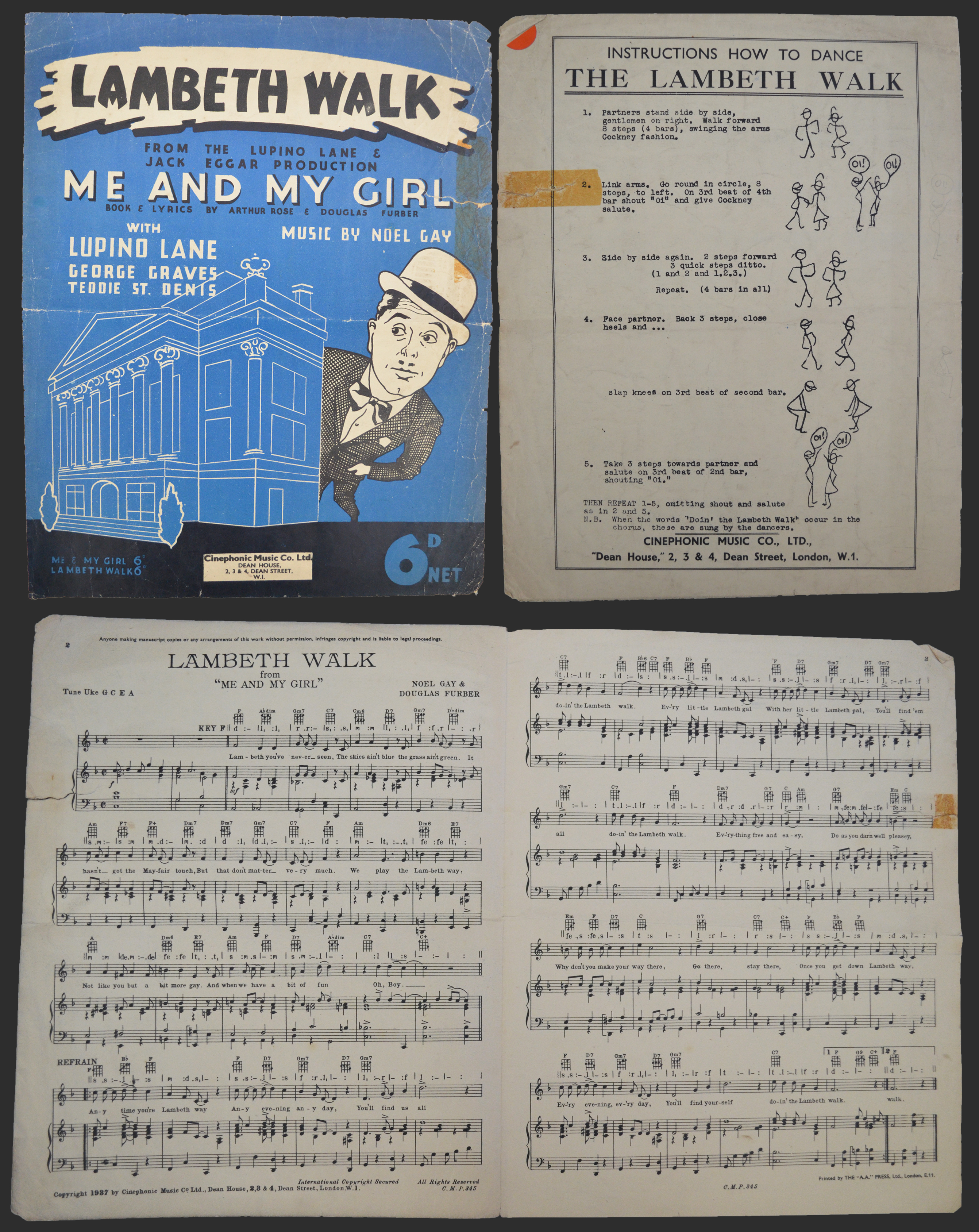
MWT/RES/166 – Lambeth Walk Songsheet, from ‘Me and My Girl’, with Lupino Lane, George Graves and Teddie St Denis, music by Noel Gay.
Photograph of the performer Chris Beeching looking very dapper in character as Champagne Charlie, for a production of a show performed at Wilton’s Music Hall in 2013.
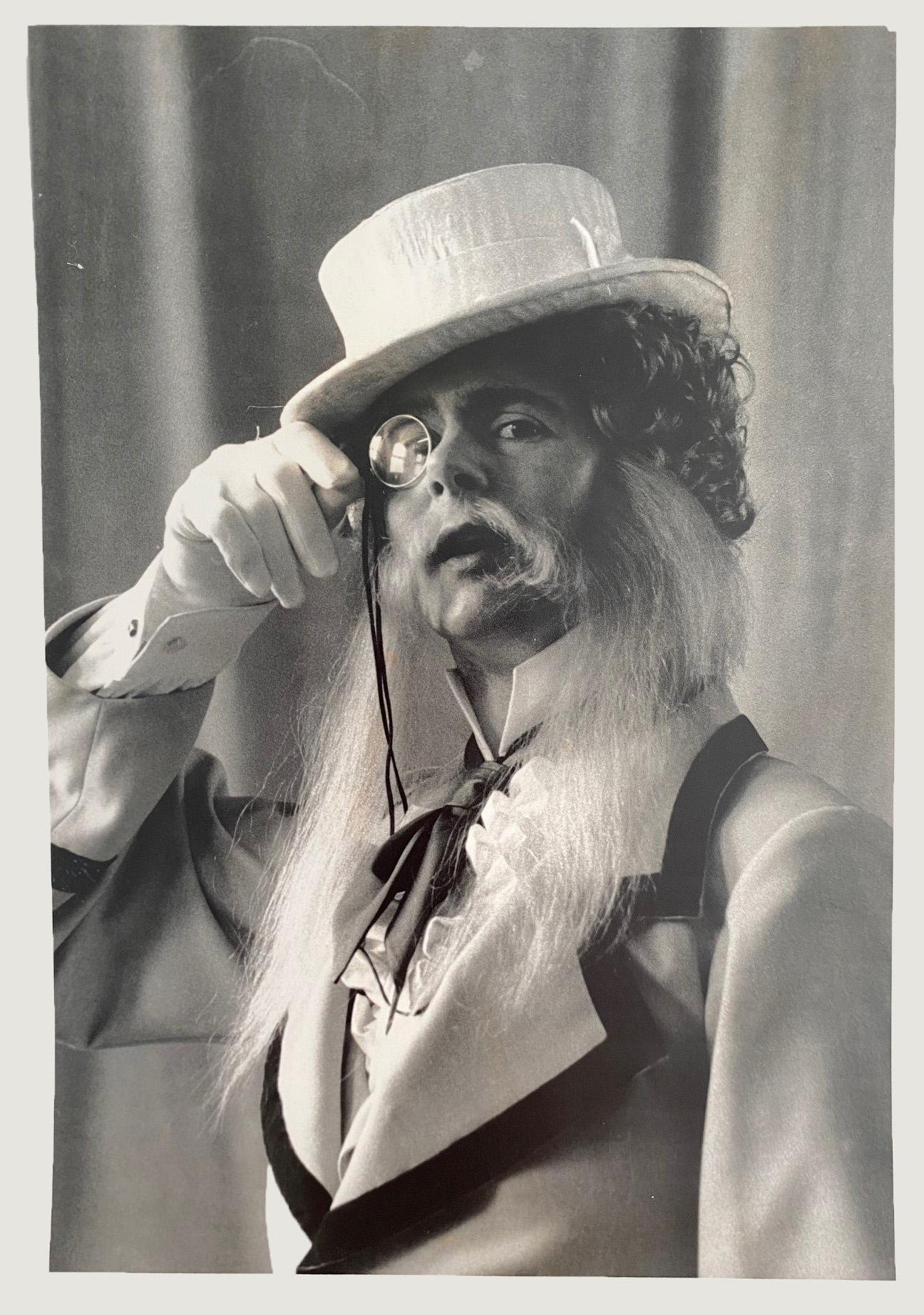
MWT/RES/067 – Black and white photograph of Christopher Beeching dressed as Champagne Charlie for a 2013 production directed by Glyn Idris Jones. Photograph credited to Dan Savident.
Sheet music for a song about our local seaside town Margate, called ‘Merry Margate’.Check out an audio rendition here, performed by our very own Dan Harding from the Kent music department!
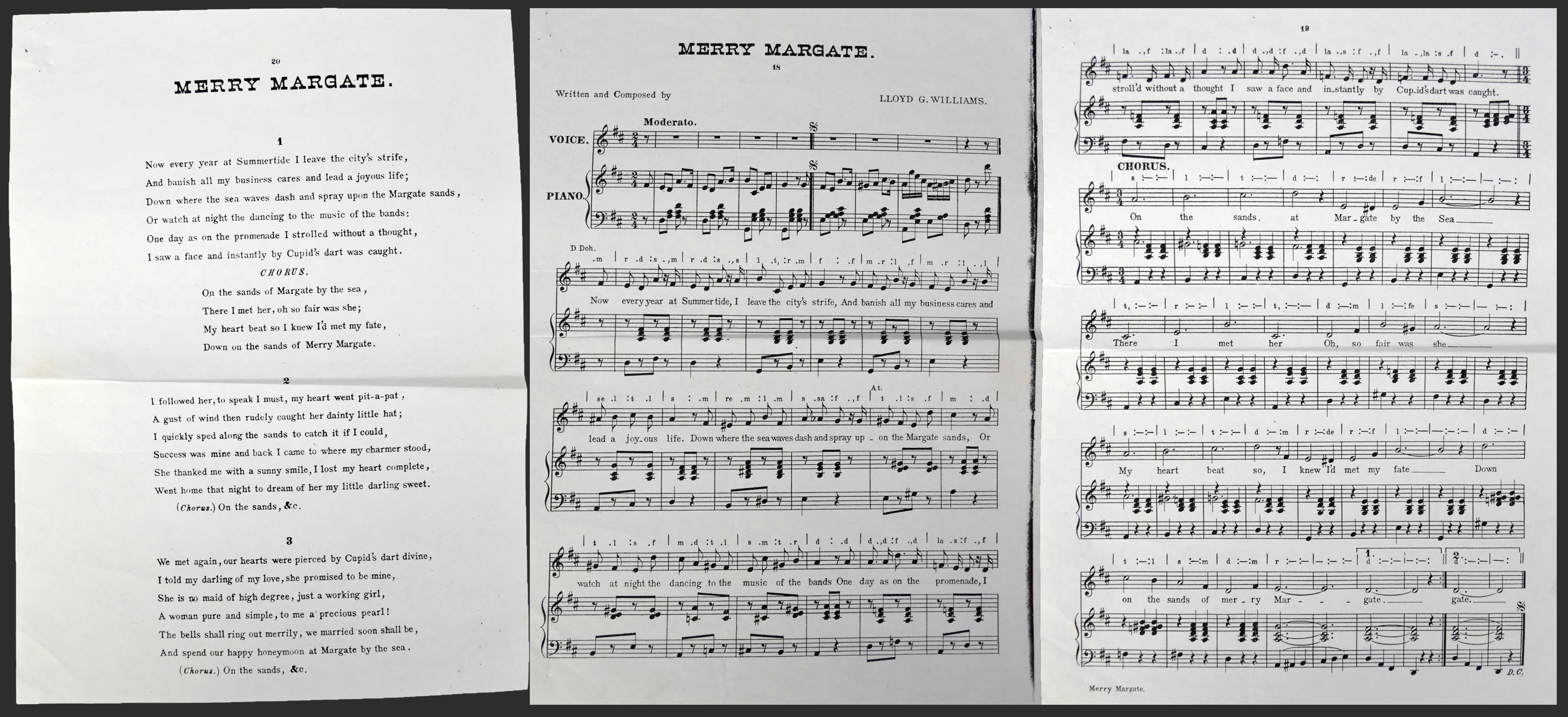
MWT/RES/167 – Photocopy of sheet music and lyrics for ‘Merry Margate’, written and composed by Lloyd G. Williams.
A souvenir folio from the first production of ‘Trilby’ on the stage in London, 30th Ocotber, 1895. Includes a cast list and photographic plates of the cast members in costume.
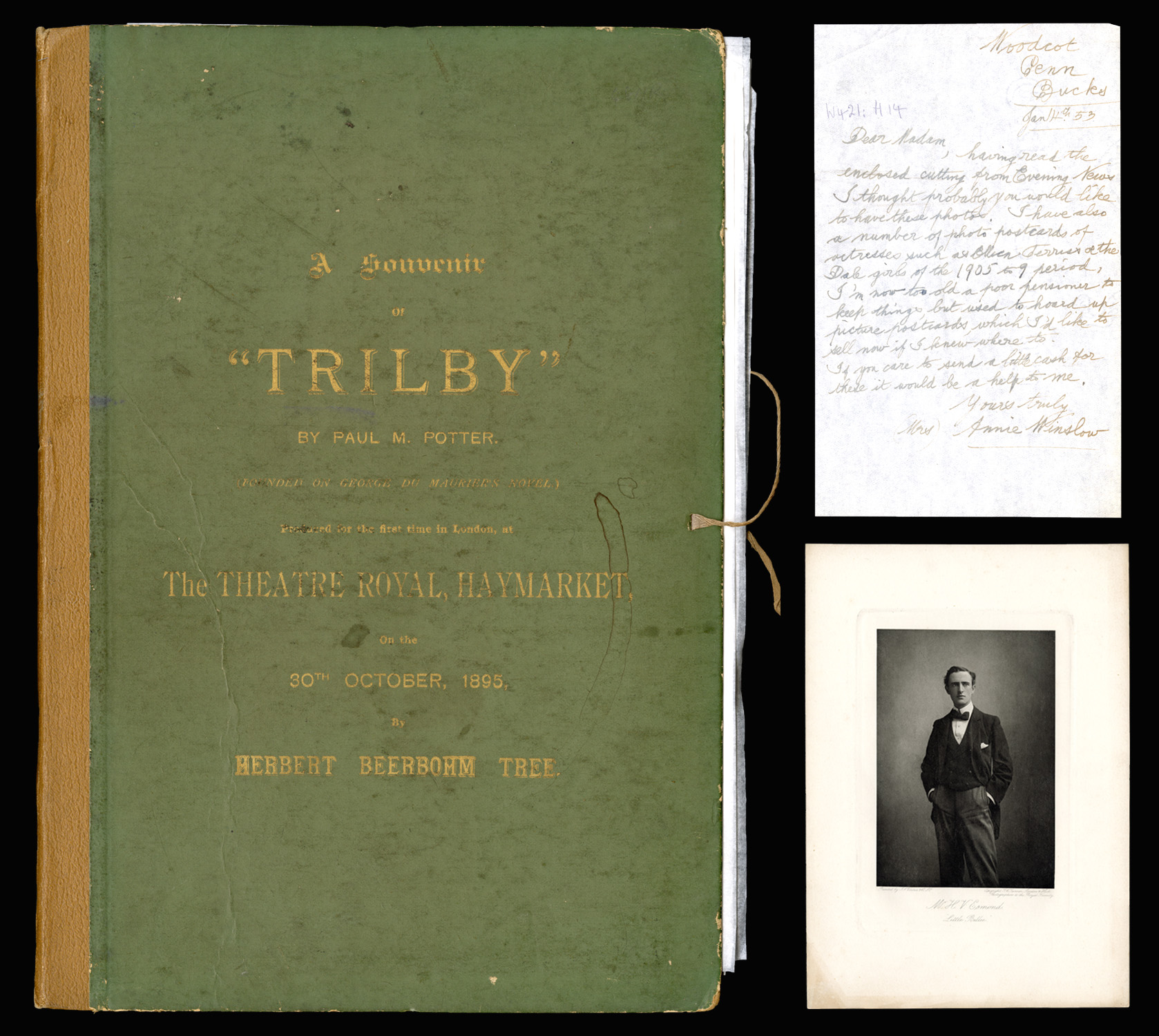
MWT/RES/008 – Small folio souvenier programme of Paul M. Potter’s ‘Trilby’, performed at the Theatre Royal, Haymarket on 30th October, 1895
That’s not to say all of the material within this collection is joyous and full of whimsy. The music hall tradition reflected societal norms of the day, and whilst many songs were intended to be satirical or comical, they did sometimes include racial stereotyping, blackface, stories of domestic abuse and/or offensive and outdated language. Whilst this can be upsetting and shocking to see, and to process and catalogue, it is important that we accurately record these terms and depictions in the interest of historical accuracy. Removing this material, censoring, or replacing these terms with modern equivalents, would risk falsifying the historical record and would in itself be problematic.
This collection has the potential to support some very interesting research projects. There is material here that could be used to research topics such as the representation of People of Colour in theatre, male and female impersonation around the turn of the century, or perhaps how humour was used to tell stories of poverty and depravation.
We’ve recently completed the cataloguing of the files, all of which you can now review on our online catalogue. If you’re interested in seeing anything in the files, just get in touch with us at specialcollections@kent.ac.uk!



